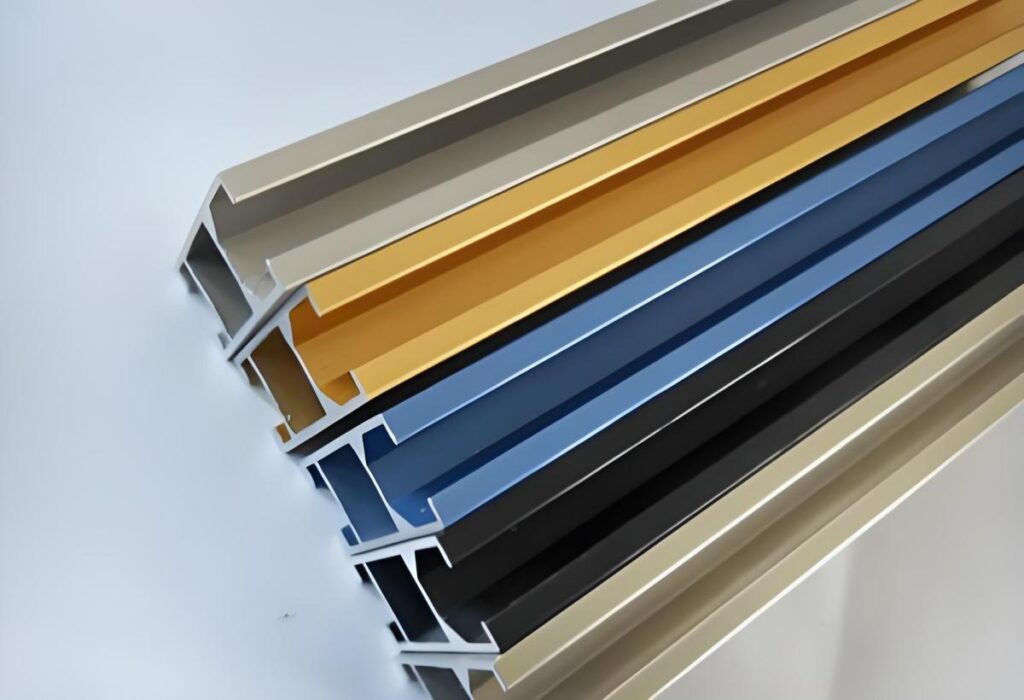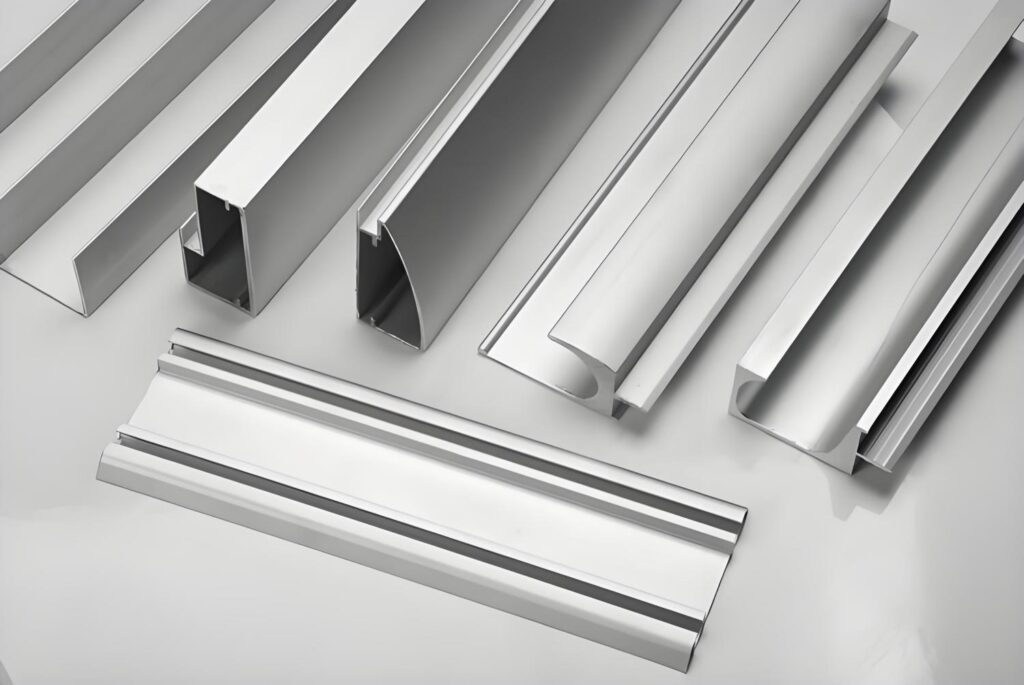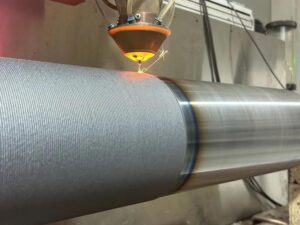What is 2024 Aluminum?
2024 aluminum is a high-strength, heat-treatable aluminum alloy predominantly alloyed with copper. It belongs to the 2xxx series of aluminum alloys and is one of the most commonly used grades in aerospace and other high-performance industries. Introduced in the 1930s, 2024 aluminum has become a go-to material where high strength-to-weight ratios and fatigue resistance are critical.
This alloy is renowned for its excellent fatigue resistance, high tensile strength, and good machinability. However, it also comes with a trade-off: reduced corrosion resistance compared to other aluminum alloys like 6061 or 5052. Because of these characteristics, it is often used with protective coatings or anodization in corrosive environments.
2024 aluminum is commonly available in various tempers such as 2024-T3, 2024-T4, and 2024-T351, with each providing different balances of strength, hardness, and workability.
Chemical Composition of Aluminum 2024
The performance of 2024 aluminum is largely determined by its chemical composition. As a copper-based alloy, it contains a precise mix of elements that contribute to its strength and other properties. Below is a breakdown of its primary components:
- Aluminum (Al): 90.7–94.7% – The base metal, providing the lightweight foundation.
- Copper (Cu): 3.8–4.9% – The primary alloying element, responsible for the alloy’s high strength.
- Magnesium (Mg): 1.2–1.8% – Enhances strength and improves heat-treatability.
- Manganese (Mn): 0.3–0.9% – Improves toughness and resistance to cracking.
- Iron (Fe): ≤0.5% – Kept low to minimize impurities.
- Silicon (Si): ≤0.5% – Enhances casting properties but kept minimal to maintain strength.
- Zinc (Zn): ≤0.25% – Contributes to strength and corrosion resistance.
- Titanium (Ti): ≤0.15% – Refines grain structure for improved mechanical properties.
- Chromium (Cr): ≤0.1% – Enhances corrosion resistance.
- Other Elements: ≤0.15% each, ≤0.5% total – Trace amounts of other elements to fine-tune properties.
Properties of 2024 Aluminum
Mechanical Properties
- Ultimate Tensile Strength: 470 – 510 MPa (depending on temper)
- Yield Strength: Around 325 MPa
- Fatigue Strength: Approximately 138 MPa
- Hardness (Brinell): 120 – 150 HB
- Modulus of Elasticity: About 73 GPa
- Elongation at Break: 10 – 20%
2024 aluminum stands out due to its exceptional mechanical characteristics, particularly in high-stress applications.
Physical Properties
- Density: 2.78 g/cm^3
- Melting Point: 502°C (936°F)
- Thermal Conductivity: 121 W/m-K
- Electrical Conductivity: 30 – 40% IACS
- Thermal Expansion: 23.2 µm/m-°C
Its relatively low density and high strength make 2024 aluminum ideal for situations where weight saving is crucial, such as in the aerospace sector.
What Is 2024 Aluminum Used For?
2024 aluminum’s unique properties make it a preferred material in industries that demand high strength, low weight, and precision. Below are some of its most common applications:

Aerospace Industry
The aerospace sector is the largest consumer of 2024 aluminum, where it is used for:
- Aircraft Structures: Fuselage skins, wing panels, and structural supports benefit from its high strength-to-weight ratio.
- Fasteners and Fittings: Rivets, bolts, and other components leverage its durability and machinability.
- Landing Gear Components: Its fatigue resistance makes it suitable for parts subjected to repeated stress.
The alloy’s ability to withstand the rigors of flight while keeping aircraft weight low has cemented its role in aviation.
Automotive Industry
In the automotive sector, 2024 aluminum is used for:
- High-Performance Parts: Components like suspension parts and engine mounts benefit from its strength and lightweight nature.
- Racing Vehicles: Its use in race cars helps reduce weight while maintaining structural integrity.
Other Applications
Beyond aerospace and automotive, 2024 aluminum finds use in:
- Military Equipment: Strong, lightweight components for vehicles and weaponry.
- Sporting Goods: High-end bicycle frames and other equipment where weight and strength are critical.
- General Manufacturing: Structural components and fittings in various industries.
While 2024 aluminum is not typically used in applications requiring high corrosion resistance, its versatility makes it a valuable material across diverse sectors.
Advantages and Disadvantages of Aluminum Alloy 2024
When considering 2024 aluminum for a project, it’s important to weigh its benefits against its limitations to ensure it meets specific application needs. Below is a detailed look at the advantages and disadvantages of this versatile alloy.
Advantages
- High Strength-to-Weight Ratio: 2024 aluminum offers exceptional strength comparable to some steels while being significantly lighter, making it ideal for applications where weight reduction is critical, such as in aerospace and automotive industries.
- Excellent Machinability: The alloy’s ability to produce clean chips and smooth surface finishes makes it a favorite for precision machining, reducing production time and tool wear.
- Heat-Treatable: Through processes like solution heat treatment and aging, 2024 aluminum can be tailored to achieve specific mechanical properties, offering flexibility for various applications.
- Fatigue Resistance: Its ability to withstand cyclic loading makes it suitable for components subjected to repeated stress, such as aircraft wings and landing gear.
- Versatility: From structural components to intricate fittings, 2024 aluminum’s properties make it adaptable to a wide range of industries and uses.
Disadvantages
- Moderate Corrosion Resistance: Due to its high copper content, 2024 aluminum is less resistant to corrosion compared to other aluminum alloys like 5052 or 6061. Protective coatings or cladding are often required in corrosive environments.
- Limited Weldability: Unlike some other aluminum alloys, 2024 aluminum is not easily weldable due to its susceptibility to cracking during welding. Alternative joining methods, such as riveting or bolting, are often preferred.
- Higher Cost: The alloy’s specialized composition and processing requirements make it more expensive than general-purpose aluminum alloys, which may impact project budgets.
- Work-Hardening Tendency: During machining, 2024 aluminum can harden, increasing cutting forces and potentially leading to tool wear if not managed with proper techniques and cooling.
By understanding these advantages and disadvantages, manufacturers can make informed decisions about when and how to use 2024 aluminum, ensuring optimal performance for their specific applications.
Heat Treatment and Temper Designations
2024 aluminum is heat-treatable, which significantly affects its properties. The most common temper designations include:
- T3: Solution heat-treated, cold worked, and naturally aged.
- T4: Solution heat-treated and naturally aged.
- T351: Solution heat-treated, stress relieved by stretching, and naturally aged.
Each temper offers a different combination of strength, workability, and stress resistance. For example, T351 provides a good balance of fatigue strength and resistance to stress cracking.
Corrosion Resistance and Surface Treatments

As noted, 2024 aluminum does not offer high resistance to corrosion, especially in moist or saline environments. However, several protective treatments can enhance its longevity:
Anodizing
This electrochemical process increases corrosion resistance and surface hardness while allowing for color finishes.
Cladding
Also known as Alclad, this involves bonding a corrosion-resistant aluminum layer to the surface of 2024 aluminum. Commonly used in aerospace.
Painting or Coating
Paints and protective coatings can act as barriers against environmental exposure.
Proper treatment allows 2024 aluminum to be safely used in more aggressive environments.
Partnering with Precionn for Quality Machining
2024 aluminum stands out as a high-performance alloy well-suited for aerospace, automotive, and industrial applications. Its excellent strength-to-weight ratio, superior fatigue resistance, and machinability make it a preferred material in many precision engineering scenarios.
At Precionn, we specialize in high-precision machining services and have extensive experience working with 2024 aluminum. Our team understands the intricacies of this alloy and utilizes advanced equipment to deliver superior quality parts tailored to international standards. With a customer-first approach and a commitment to excellence, Precionn is your trusted partner for aluminum machining solutions.
Whether you need prototyping, small-batch production, or high-volume manufacturing, Precionn is equipped to deliver. Visit our website to learn more about how we can help with your next machining project.




